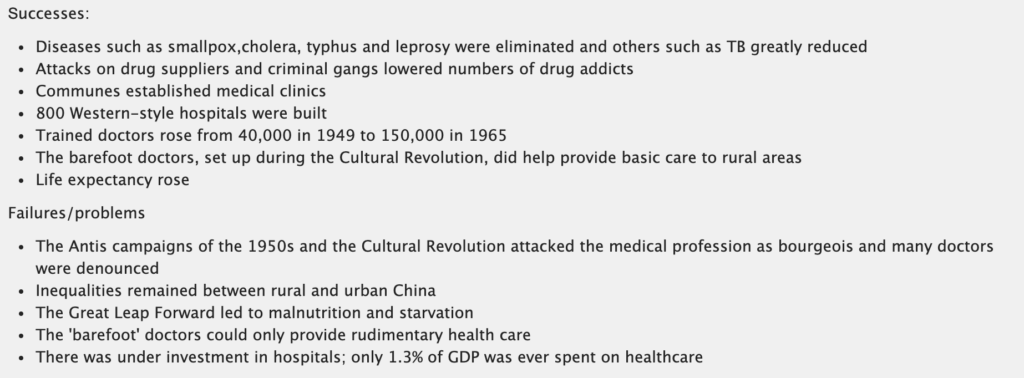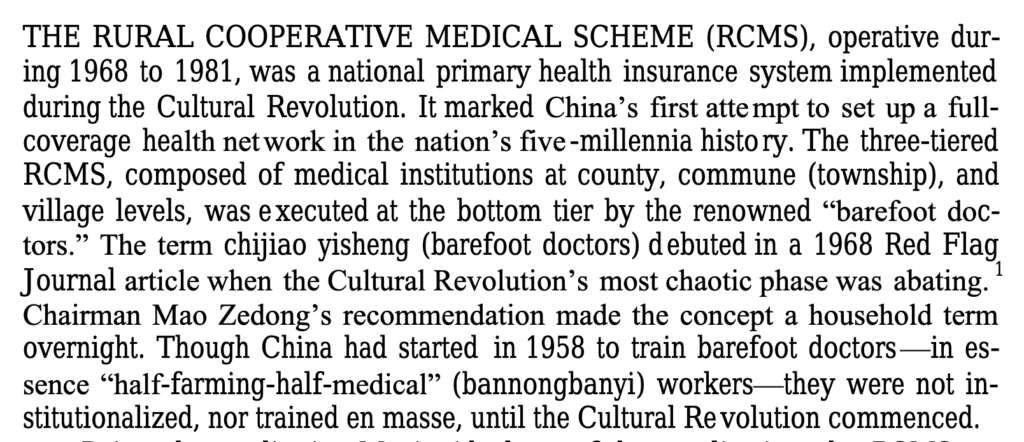Economy
- The Five-Year Plans were somewhat copied from Stalin and the USSR.
- Economically reliant on the USSR in the 1950s, $300 million in loans under the Sino-Soviet Friendship Treaty of 1950 (but these loans only 3% of China’s GDP).
- Soviet expertise also important in driving the economy, 11 000 people working in China during the 1950s.
- Heavy industry improved during the Five-Year Plans.
Education
Land Reform
Power
Culture
Religion
Women
- Mao attempted to get the support from women by passing policies which would create equality in the country.
- He introduced International Women’s Day in December 1949.
- 1950 Marriage Reform Act, women had to agree to be wed.

- They could also divorce and be allowed to keep their female babies., and concubinage was also outlawed. However, is some regions society remained patriarchal (Confucianism stated ‘Women must obey men’) and the laws were ignored.
- Footbinding was abolished.
- Women were allowed to own land (although this was taken away during the first-Five Year Plan).
- Prostitution was outlawed.
- However, women rarely rose in prominence in their communities, earning less than men and generally forced to continue their domestic duties. The propaganda gave a false image (Mao’s quote of ‘Women ‘can’ hold up half the sky’) and even the party cadres failed to carry out the party policies concerning equality.
- Yet the propaganda was effective in that even after Mao’s death women believed he had created better conditions for them in China.
- On balance, women developed the impression that they could have access to better opportunities. Even if only some women took ‘better’ jobs, this was enough to create it.
- A key figure in the CCP during the 1960s was Jiang Qing, Mao’s third wife. She is a good example to use when discussing women in this unit. Jiang Qing.
- Ding Ling was an author, writing celebrated books such as The Sun Shines over the Sanggan River in 1948. She was a member of the CCP but was expelled for her criticisms of the party in 1957 (Anti-Rightist Campaign). She was also imprisoned during the Cultural Revolution, before being released in 1975. Alpha History – Ding Ling
Minorities
Health

Patriotic Health Campaign (1952)
China’s barefoot doctor: ‘We did have shoes’

